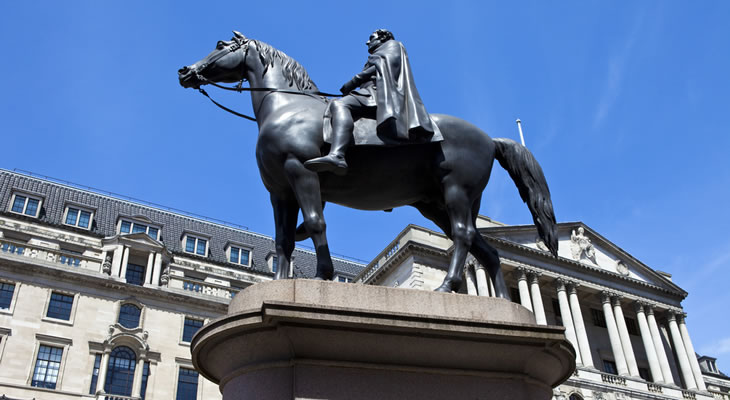Bank of England (BoE) monetary policy could be set to diverge further from that of its US counterpart after recent disappointing inflation data, which has already seen the Pound US Dollar rate slump.
Below-forecast average weekly earnings figures for the UK in the three months to December have suggested households are going to struggle to cope with the pace of price increases.
Average weekly pay, excluding bonuses, rose 2.6% to £477 in the twelve week period. Earnings had been forecast to hold steady at the previous level of 2.7% – itself a rate of increase about which the markets are concerned.
This soured appetite for the Pound as it bodes ill for the future of consumer spending. Yesterday’s inflation data suggested the Bank of England (BoE) is unlikely to act to curb price growth in the near-term, leaving households to battle rising costs.
Core inflation clocked in at 1.6% on the year in January, while the overall consumer price index rose to 1.8%. This represents a two-and-a-half-year-high, but was weaker than the 1.9% economists had expected.
Whether indicating slowing price growth or just a temporary blip in the advance, the data gives the Monetary Policy Committee (MPC) more room to breathe before its tolerance for above-target inflation is tested.
As such, traders rushed to sell Sterling on the lower odds of higher UK interest rates in the near-term.
GBP USD exchange rate losses have been stemmed slightly after US monetary policy also took a hit this week, thanks to the latest comments from Federal Reserve Chair Janet Yellen.
Overall the chief policy-setter was optimistic. Speaking to the Senate Banking Panel, Yellen observed that ‘Waiting too long to remove accommodation would be unwise, potentially requiring [the Fed] to eventually raise rates rapidly, which could risk disrupting financial markets and pushing the economy into recession.’
However, Yellen did not make reference to the possibility of three hikes this year. Even though she stated that the March meeting was ‘live’ in terms of the potential to see policy tightening, she did not seem overly inclined to hike rates so early into the year.
The Fed’s Atlanta President Dennis Lockhart further dampened the odds of a March movement. ‘I don’t really see compelling reasons to move ahead in March,’ he stated.
He also highlighted that President Donald Trump’s attempts to stimulate the US economy would significantly impact whether rates were hiked twice or three times in 2017. Markets seem to be expecting the impact of fiscal stimulus will be felt soon, but Lockhart was less optimistic.
‘What I now detect is simply that the reality of crafting those policies may take a little longer than perhaps many believed a few weeks ago. So their impact on the economy could well come later rather than sooner,’ the Atlanta Fed President explained.
Lockhart’s Dallas counterpart, Robert Kaplan, took a different tone. ‘I believe that we should be taking steps to remove additional amounts of monetary accommodation,’ Kaplan said in prepared remarks.
He suggested that a near-term acceleration in the pace of monetary policy normalisation would allow the Federal Open Market Committee (FOMC) to adopt a more gradual pace in the long-term, minimising economic damage.
‘Moving sooner rather than later will make it more likely that future removals of accommodation can be done gradually —that is, reduce the likelihood that the Fed will get ‘behind the curve’ and feel the need to remove accommodation more rapidly.’


Comments are closed.